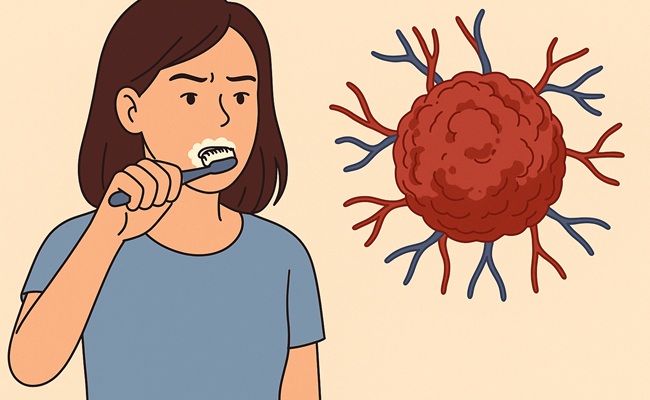
A recent AIIMS Delhi study highlights the critical role of oral health in preventing and managing serious illnesses, including cancer.
Researchers emphasized that oral hygiene practices must be integrated into all levels of healthcare, not just at the primary level, to improve overall health outcomes and reduce disease risks.
Evidence links poor oral hygiene with conditions like cardiovascular disease, diabetes, Alzheimer’s and especially cancer.
Gum disease, in particular, shows strong association with cancers of the head, neck, lungs, breast and digestive system.
Data from international studies revealed that routine dental care, like brushing daily and visiting the dentist annually; can reduce the risk of head and neck cancers.
Cancer treatment, especially radiotherapy, significantly affects oral health. Patients with poor gum health face higher complications after treatment.
Therefore, maintaining oral hygiene before, during and after therapy is essential for better recovery and survival.
The study calls for better data from South Asia, awareness campaigns, school-based brushing programs and policies restricting sugar and tobacco promotions.
Researchers recommend that WHO South-East Asia Region implement affordable, evidence, based oral health programs to reduce cancer risks and health inequalities.
Public awareness, supervised brushing and policy changes could help transform oral healthcare in India and beyond.














